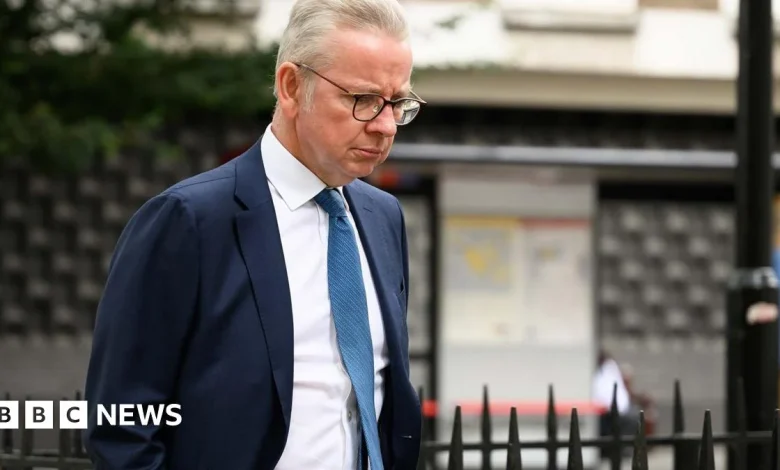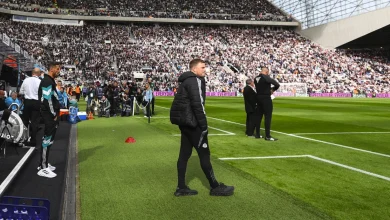Michael Gove apologises after Covid report alleges ‘toxic’ culture

Responding to the report, Prime Minister Sir Keir Starmer said the government would learn lessons from the report and was already “taking measures to make sure that, not just the NHS but the government as a whole, is prepared for any number of eventualities”.
The 800-page inquiry report is highly critical of government decision-making, and says implementing a Covid lockdown a week earlier could have saved 23,000 lives in the first wave in England – although it does not suggest that the overall death toll would have been reduced.
It also says lockdowns could have been avoided if the government had introduced restrictions such as social distancing earlier and concludes lockdowns “only became inevitable because of the acts and omissions of the four governments” in England, Northern Ireland, Scotland and Wales.
The report describes February 2020 as a “lost month” and says the government’s lack of urgency was “inexcusable”.
It says there was a failure to learn lessons from the first Covid wave and that restrictions in autumn 2020 were introduced too slowly.
At Christmas of the same year, the inquiry argues the governments failed to take action “until infection levels were critical”.
Johnson, who was prime minister between 2019 and 2022 and set up the inquiry, is accused in the report of failing to make decisions quickly enough in autumn 2020 – and of repeatedly changing his mind.
He has been contacted for a comment.
Lord Gove rejected a suggestion that the conclusions of the Covid report would put an end to any future political ambitions Johnson may have.
He said Johnson’s style of decision-making “may not be to everyone’s taste” but added he was “wrestling with an enormously difficult question about the curtailment of liberty and the maintenance of access to healthcare”.
“More than that, without his drive we would not have had his vaccine roll-out that ensured we were the first country to put jabs in arms.”
Dominic Cummings, a senior aide in Downing Street at the time, is singled out for criticism in the report which suggests he displayed “destabilising behaviour” and contributed to a “culture of fear” that “poisoned the atmosphere”.
The report said he had “materially contributed to the toxic and sexist workplace culture” but also praised him as being a catalyst for action and being one of the first political figures to demand strategy meetings and modelling on the virus.
Mr Cummings, who left No 10 at the end of 2020, accused the inquiry of enabling “a vast rewriting of history”.
He said on social media it was “important for the public to realise that on most of the big questions, the ‘experts’ including the senior scientists were completely wrong” in the early months of 2020.
The BBC had previously approached Mr Cummings about responding to the report.





